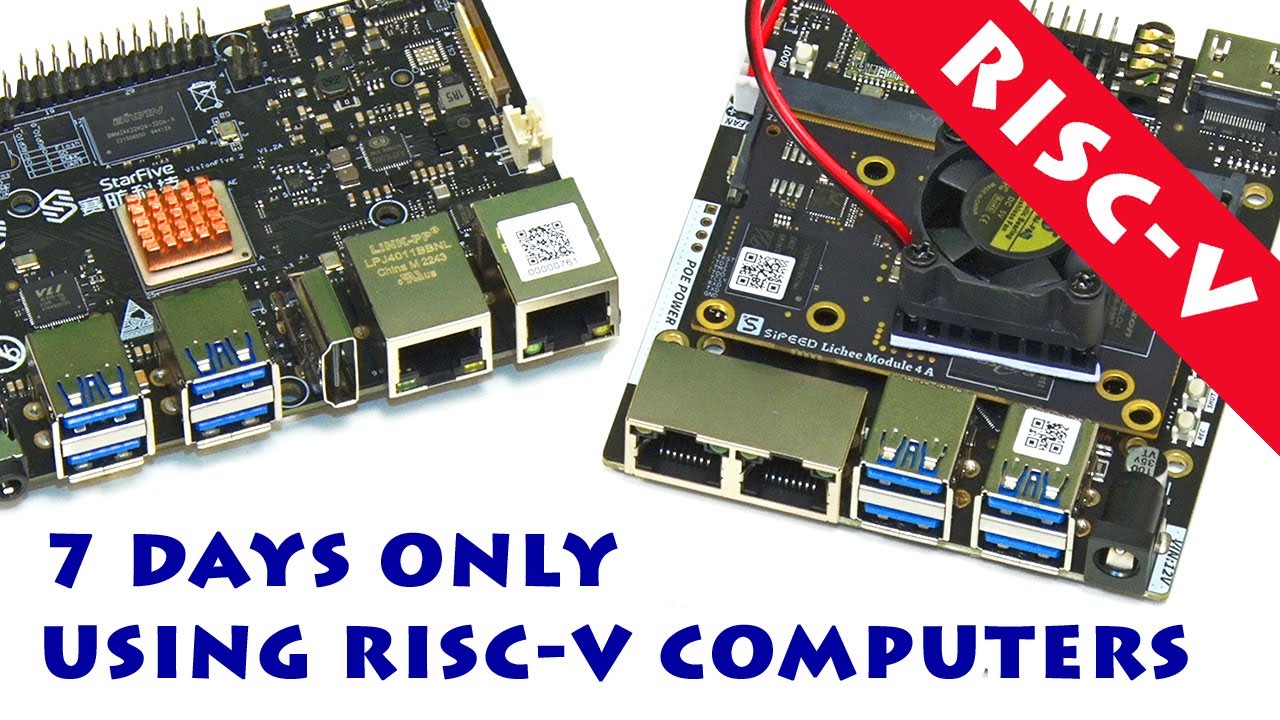RISC architecture is gonna change everything.
It’s only a matter of time, x86 is very power hungry and while companies like Microsoft have been slowly adding ARM support, they’re weary of having to rely on expensive proprietary architecture that can pull the rug under hardware companies at any time. Remember when Nvidia tried to buy ARM? Luckily that failed but with RISCV that’s not a concern. The next few years are gonna be pretty good, I can’t wait for reliable riscv laptops that can have good battery life and performance.
Yeah. RISC is good.
Good old Hackers (1995)
Why is that?
It opens the door to more manufacturers since there is no ISA licence fees. While the AMD/Intel duopoly is being fairly competitive at the moment, it really doesn’t have to be. Only think back to how bad it was late 2000s to 2015.
I imagine a plethora of core designers, soc vendors and platform creators filling their own niches; lowest cost, lowest power, HW accelerators, highest core count etc.
I don’t see the raw performance of AMD/Intel being surpassed soon, just because of the sheer total R&D years each has, but that doesn’t mean there aren’t other areas better suited to a different architectural approach.
It is a movie quote:
Here is an alternative Piped link(s): https://piped.video/watch?v=wPrUmViN_5c
Piped is a privacy-respecting open-source alternative frontend to YouTube.
I’m open-source, check me out at GitHub.
Here is an alternative Piped link(s): https://piped.video/watch?v=Na6PT4npsMg
Piped is a privacy-respecting open-source alternative frontend to YouTube.
I’m open-source, check me out at GitHub.
Pretty encouraging progress. Soon RISC V will be a viable platform for regular users.
I’m surprised he was able to watch Paramount Plus. I would assume that site requires Widevine DRM, and would not assume that it’s available on RISC-V.
As for Blender and Kdenlive not working I’m assuming it’s not because of the ISA like Christopher said, but rather because the board likely ships with crappy GPU driver blobs that only support OpenGL ES and no desktop OpenGL. Which is an important detail that this guy always misses in SBC reviews.
In the comments, he says it started working a day after he posted the video. It is basically just a side-effect of all this being pre-release software as these are dev boards at the moment.
How hard is the initial setup for this board? Is it a simple flash an sdcard and power it, or does it require manual kernel crosscompiling of some specific unmaintained github fork? I know Debian is working on offcial riscv support but I haven’t looked at how far its come along in a bit.
I think he said in an earlier video that the Lichee 4A comes with Debian pre-installed.
I own its predecessor, the Lichee RV. It recommends flashing one of their images to a flash card for that one, but I ended up compiling my own bootloader, kernel, etc just because I wanted to, for fun.
Pre-installed to the emmc I assume? That’s nice for the out of the box experience, but knowing the nature of SBCs I’d like to be able to at least get a copy of the image so I can burn a new boot device when something goes a little sideways.
Since you’ve worked with them before, are these the correct images? https://wiki.sipeed.com/hardware/en/lichee/th1520/lpi4a/3_images.html I did a little bit of digging from the link in the description of the video, if so then I’d gladly get a couple of these to play with. Dual Ethernet, and even PoE is awesome at this price point.
Yeah, the one’s off sipeed’s site should work. I’ve never used it though, I basically built my own, tiny LFS image for it. Also, keep in mind that if you get a Lichee RV, it will be significantly less powerful than the Lichee 4A. It’s based on the single-core Allwinner D1 CPU and only has 512MB of memory. It’s a fun little board though!
Edit: Just wanted to clarify: I have no experience with the 4A, only the RV model. I wish I did though. It looks pretty cool!
You can use dd on another machine to make a bitwise copy of the card before you first use it.
This is really great!
Just checked and on my AMD Ryzen 5 the GIMP lava render took 5 seconds (compiled Appimage version) or 10 seconds (every damn other version, no idea why).
So the liechi Pi is a third of that speed, which is pretty damn impressive!
Indeed. If you did performance per watt, it would show even better.
The critical thing I saw here is that a RISC-V board is now outperforming a Pi 4. The price / performance just has to improve a bit more and RISC-V will be a viable alternative in the SBC market. I see it moving to laptops and tablets pretty quickly after that.
Totally independently, there are people trying to make RISC-V work for servers. As ARM has not really succeeded there, RISC-V may even beat them to it.
The place that I expect ARM to continue to dominate for quite some time is Phones. And x64 is not going anywhere for desktop and probably gaming for quite some time.
Performance / watt matters though and, as RISC-V improves, the long term picture for ARM especially gets pretty cloudy.
Hopefully the day of RISC-V overthrowing x86 is sooner than we think. Progress on development has been fast and it’s very exciting.
It is likely to overthrow ARM before taking over from x86. Even if it does dominate ARM though, things like Apple Silicon ( which uses the ARM ISA ) are going to be with us for a while.









